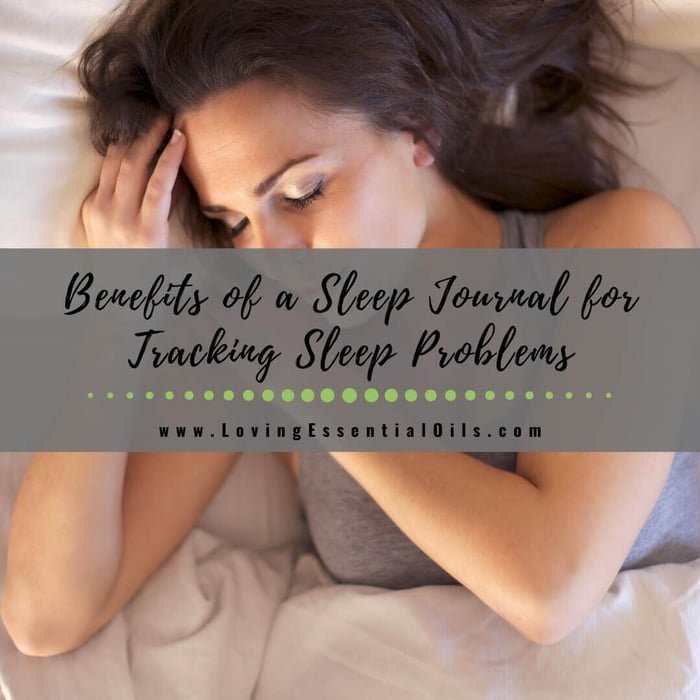Table of Contents
Are you waking up feeling tired in the morning? While most of us expect to feel fresh and energized after a night’s sleep, that’s not always the case. Learn about the benefits of a sleep journal and how it can improve your health and wellness.
Sleeping can be a challenge for anyone, which is why a sleep journal is a fantastic tool for tracking your sleep habits and improving your sleep quality. A sleep journal is simply a place to record what you’re doing before bed and your sleep habits, which can help you pinpoint habits that could keep you up at night.

Can a Sleep Journal Help with Sleep Problems?
There can be many causes of not sleeping properly, which can lead to feeling beat up in the morning, lacking the energy you need to get through the day, and not being able to sleep right night after night.
One of the best ways to solve a sleep problem is to be aware that you have one. In the case of sleep problems, a sleep journal can help you identify the underlying cause of your sleeplessness. What’s more, it can also help you come up with a plan to improve your sleep. With a sleep journal, you can record information related to your sleep patterns and lifestyle habits.
Identifying the causes that disturb your sleep or prevent you from resting sufficiently at night is necessary if you want to change this aspect and feel rested in the morning.

What Should Be Written in a Sleep Journal?
A sleep journal can be extremely helpful when figuring out what messes up your night’s sleep. Performing an introspection for about two weeks, the time in which you write details about your daily habits in your sleep journal, can bring light to this case and underline the causes that keep you from resting as you should.
At the end of the day, you should focus on several aspects, as follows:
- When do you go to bed? More precisely, the hour you get into bed at night.
- What is the hour when you actually fall asleep? If this is something, you know. Looking at the time when you feel sleepy enough might give you an idea unless you drift away and fall asleep before you do this.
- How often do you wake up during the night? Like how many times you end up waking up during your sleep.
- How long does it take for you to fall back to sleep after waking up at night?
- When do you wake up in the morning? Write down the hour for this part.
- Do you take naps during the day? If so, how many naps do you take, and how long does each nap last?
- Are you taking any medications? If yes, what types of meds are you using, when, and how often?
- Did you have caffeine, alcohol, or both? If you did, how much did you drink?
Writing all these things in a sleep journal will reveal any bad habits you may have that interfere with resting well at night.
How to Keep a Sleep Journal?
Keeping a sleep journal is a great idea, but it can be hard to keep up with it. The most important part of making a sleep journal effective is being consistent. Keeping a sleep journal is only as effective as your dedication to it.
When you’re struggling to get a good night’s sleep, keeping a positive attitude and navigating your way through the day can be challenging. That’s why it’s important to keep a sleep journal to record how much you sleep and other factors that may affect your sleep, such as stress levels, drinks, medications, and other health issues. You can then review the journal, and any emerging patterns will help you determine what is causing your sleep issues.
Sleep Journal Tips
It is not a good idea to have alcohol before sleep time. Even if you feel like it helps, in reality, alcohol will keep you from having a deep sleep. Plus, it will dehydrate you and wake you up for water at night.
Various medications, even those for seasonal colds and flu, could also affect your sleep. If you are taking any medications, check to see if they can affect your sleep.
A good night's sleep also means implementing a good evening routine. For instance, try to go to bed and wake up in the morning at the same hours every day. Also, avoid using your smartphone, tablet, or computer before bed.
Exercising can also help promote better sleep at night, as long as you time this habit right. Don’t exercise late in the evening, as physical exercises can energize the body.
Why Keep a Sleep Journal?
So, is it worth keeping a sleep diary? A good night’s sleep means a better day because you will feel filled with energy and motivated to tackle any challenge that comes your way.
A good night’s rest is beneficial for overall health, keeping body weight in the desired ranges, and providing higher energy levels.
As a piece of advice, don’t skip sleep during the week, thinking that you’ll catch up on the weekend because such a strategy will never work. The lost hours of sleep won’t be recovered by sleeping more in your free days.

3 Important Benefits of a Sleep Journal
A sleep journal has so many benefits that knowing where to begin is hard! A sleep journal can help you develop more consistent sleep habits, record your sleep patterns, identify any sleep problems you might have, and provide a place to document your sleep habits over time so you can spot trends.
If you’re wondering about the benefits of a sleep journal, you should read the list below. This can help you determine what changes you must make to get your sleep schedule on track.
1. Track Your Sleep Pattern
Keeping a sleep journal can improve your quality of life. This is because tracking your sleep patterns can help you identify the factors contributing to your sleep problems. For example, if you notice that you fall asleep more easily when you read a book or watch TV, you can eliminate these factors in your bedroom and experiment with other ways to help you relax.
It will help you learn more about your sleeping patterns and habits, allowing you to make changes to promote better nighttime sleep.
2. Brings Awareness to the Importance of Sleep
You will develop a better approach toward sleep. After observing your sleep-related habits for two weeks and writing all the important details in the sleep journal, it will be easier to see what’s not working for you and what can be changed.
At the same time, you will become more aware of the importance of sleep in your daily routine.
3. Helps to Identify Underlying Causes
The information can help with obtaining a better diagnosis. If you did write everything in your sleep journal and did your best to make changes so that you enjoy a night of better sleep, but nothing seems to work, talking to a doctor may be the best way to go.
In this case, the info provided by your sleep journal can help the doctor reach a better diagnosis in your case and help you treat the underlying cause.
Sleep Journal Benefits Summary
You may not realize it, but sleep quality is crucial to your health and happiness. A good night's rest has impressive benefits: increased alertness and memory, increased productivity, and better quality of life. The best way to determine the quality of your sleep is to keep a sleep journal.
Monitoring this part can bring significant improvements if you feel you’re not resting well at night. Just like you have an agenda for your daily tasks, you can find printed sleep journals specially made to help you keep track of your habits and sleep patterns.
Sleep Hygiene Journal
Are you tired of trying to remember what you dreamed about last night or the day before? Or worse, worried that you might have sleepwalked or talked in your sleep? If so, a sleep journal is an excellent tool for you to use.
A sleep journal is simply a record of what happens during the day and at night, including the things that influence your moods and energy level. It is a quick and easy way to get a snapshot of your life.






